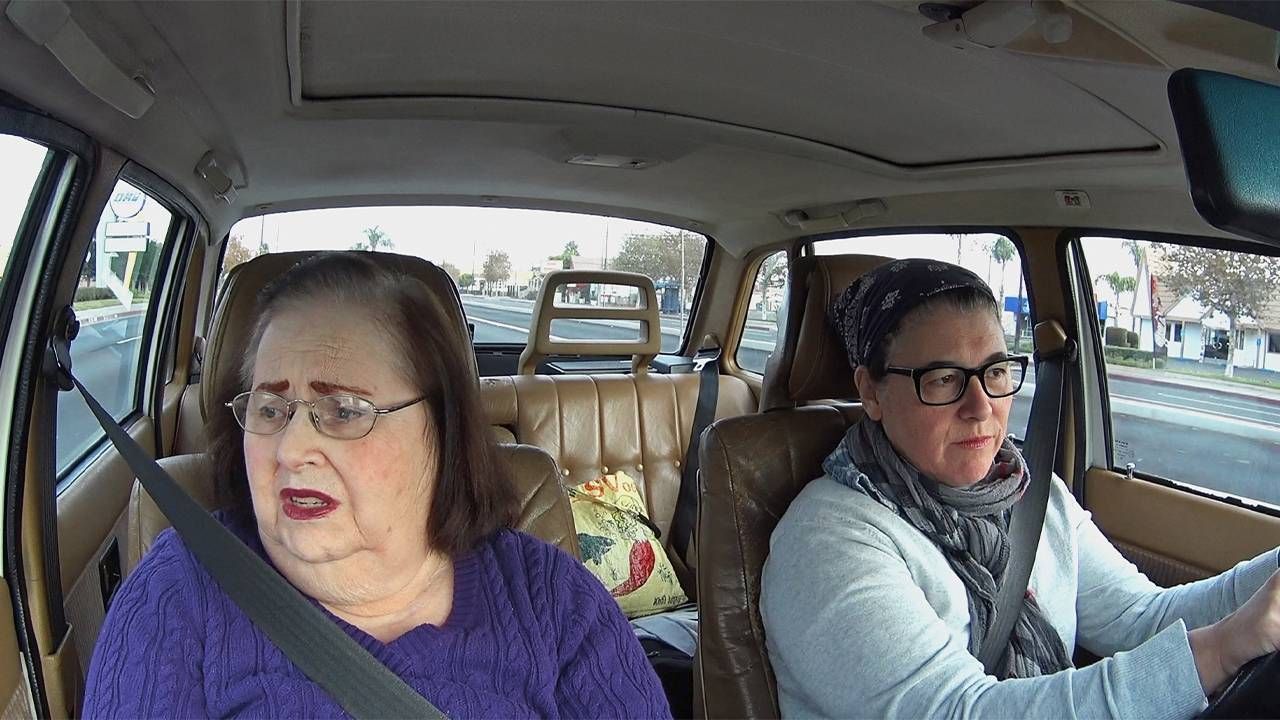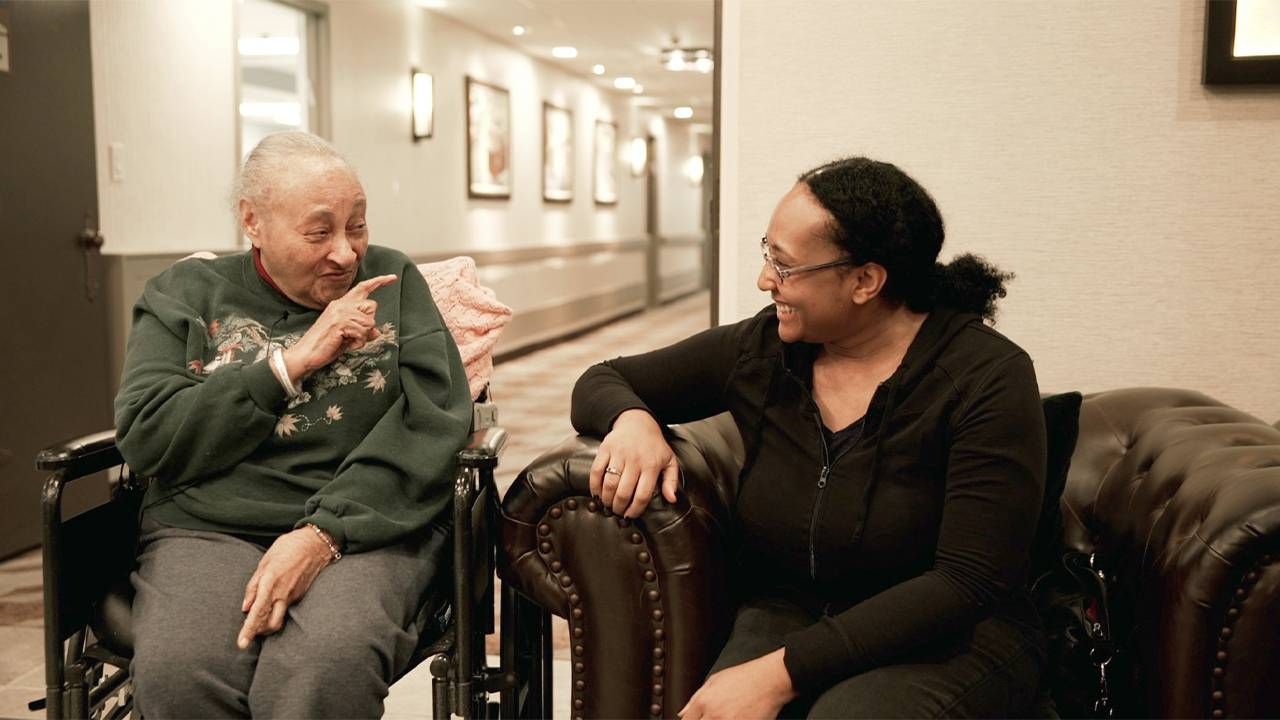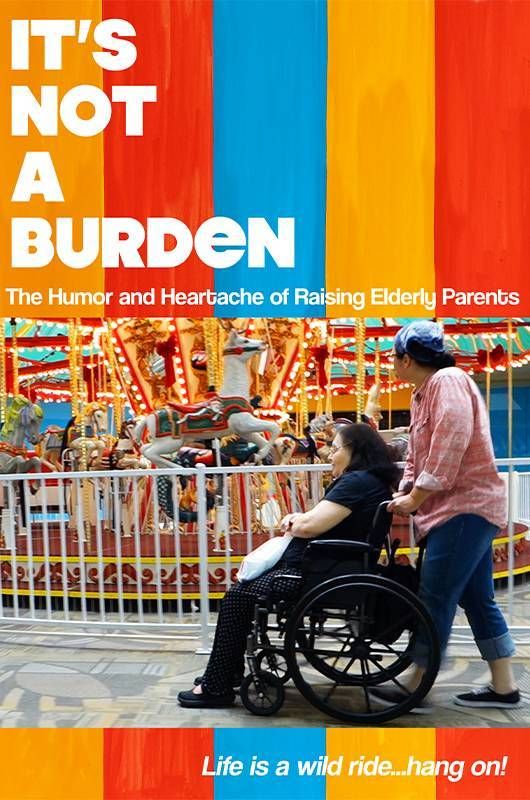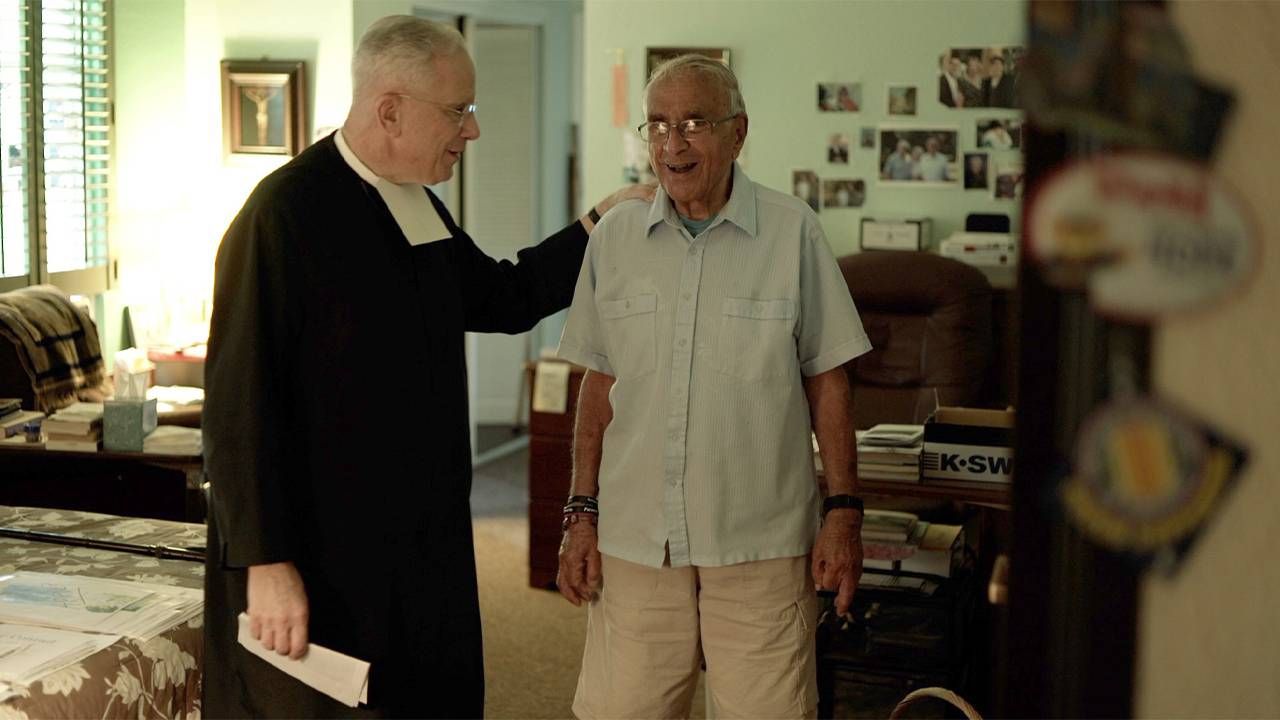'It's Not a Burden' — the New Film on Caregiving for Your Parents
Funny, heartfelt and fantastic, it shines a spotlight on the complexities of caregiving for your mom or dad
"It just feels like you're born and then suddenly one day, you're transported to this family-themed amusement park. You're placed on a ride with your parents and maybe a couple of siblings and then off you go!" says Michelle Boyaner, in her new humorous, heartbreaking, insightful documentary, "It's Not a Burden: The Humor and Heartache of Raising Elderly Parents." Now, she says, "We're on different rides and in different roles at that family-themed amusement park … Look, our parents did their best to take care of us when we were younger and now it's our turn to do the same for them. Let's just hang on and try not to throw up."

Much of the 87-minute cinema verité documentary by the Emmy-nominated, Los Angeles filmmaker (now available streaming on demand; in theaters in 2022) invites the audience to watch scenes from Boyaner's experience caregiving for her divorced parents.
"There were times with my mom, it was like 'Oh my God, of course it's a burden. This is totally a burden.'"
Her funny/ornery mother with dementia (Elaine), a former natural childbirth educator, is filmed living in a board and care home, often asking about the house she thinks she lives in but actually sold decades ago. Her cheerful, independent father Morris, a former engineer/tax accountant has diabetes and COPD, lives alone and — despite being meticulous as a young dad — now has a hoarding disorder Boyaner tries to manage.
The 'It's Not a Burden' Filmmaker's Caregiving Story
Decades ago, Boyaner's mother left the family, which led to a thorny relationship with the filmmaker that turned into a loving one during the caregiving years. A key theme of the film, which got its initial $40,000 in funding through Boyaner's Kickstarter campaign: forgiveness.
"It's Not a Burden" also offers glimpses into the caregiving stories of more than a dozen others across the country of all races, genders and backgrounds — some living with, or near, a parent; others providing caregiving at a distance (the movie was made between 2015 and 2019, pre-pandemic). The parents live in very different places, from a mobile home to a $15,000-a-month assisted living facility.
All the caregiving adult children are doing the best they can, with emotions ranging from endearment to occasional enragement, and all are providing caregiving from a place of love. They're living proof of one finding in the AARP/National Alliance for Caregiving "Caregiving in the U.S. 2020" report: 51% of America's caregivers feel their role has given them a sense of purpose or meaning.
Explaining the film's title, "It's Not a Burden," Boyaner spoke about her own experience.

One day, when she was scheduling a doctor's appointment for her father, Boyaner's dad said: "I don't want to be a burden" and Boyaner responded: "Dad, you're not a burden." But, she added, "there were times with my mom, it was like 'Oh my God, of course it's a burden. This is totally a burden.' And yet the truth was somewhere in between."
During her years of caregiving, Boyaner's dark-humored mom asked her: "How does it feel to be raising your elderly parents?" Because, Boyaner said, "it was going to pick up the Pull-Ups for her…and the supplies that a parent might get when they're raising a child." But the film, Boyaner noted, is a homage to her mom and her dad.
"Sometimes we might feel like it's a burden, but it's a gift," she said.
"It does feel like a higher calling," Boyaner noted. Well, sometimes.
"When you're in the handicapped stall at a movie theater trying to help your mom get re-dressed so you can get back in, it does not feel like a higher calling," Boyaner joked.
It was important, she noted, that the film include scenes of when some of the parents were much younger and, in certain cases, more vibrant. "Because that person is still in there," said Boyaner.
Remarkable and Relatable Caregiving Stories
Many of the millions of Americans who are, or have been, caregiving for their parents (myself included) will relate to the stories Boyaner shares on screen.
"As a Black person, I think [caregiving] is something we've done all our lives. That's our story…"
"I knew this was never going to be just about me and my mom," Boyaner, who lives with her partner Barbara in Boyaner's late grandparents' home, told me. "I thought, 'Gosh, if I'm going through this and friends that I'm talking to, we're getting together and instead of talking about whatever we've been binge-watching, we're talking about which dementia medication might work or 'I thought my mom had a stroke' — all that stuff that we learn being on the front lines [of caregiving for our parents]."
She knew this was a documentary she had to make for the other caregivers like her and that she wanted "everyone to have sort of a voice in the chorus of it." In the film, Boyaner told me, "the song we were singing is: you're not alone."

Other caregivers in the film (some whose last names aren't mentioned) include Dawn Kirk-Alexander, who, in 2004, moved her mother from Tennessee into her Northridge, Calif. home; Brother Ken, a former caregiver for elder Catholic Brothers at the Holy Family Community at Mont La Salle in Napa Valley, Calif. who took off five years to care for his mom in her 90s in Pittsburgh; Cynthia, a restaurant owner in LA. caring for her mother in an assisted-living facility in Rome, Ga.; Mike, who's raising twin teenagers and moved next door to his mother; Darla, shown with her mother in Denville, N.J. and Ilene, who had been caring for her father in Provincetown, Mass.
Most of the caregivers in the film are women. That's understandable: 61% of caregivers are, according to AARP and the National Alliance for Caregiving.
For some of the people showcased in the film, caregiving came naturally. Kirk-Alexander said: "As a Black person, I think [caregiving] is something we've done all our lives. That's our story…We take care of the older ones and we're not inclined to put them in facilities; usually, we can't afford to put them in facilities."
One of the film's charming moments has Brother Ken, now 70, visiting Esther Lapidus, 96, and her caregiving daughter, Maxine. In an earlier life, Brother Ken performed with Lapidus in a Pittsburgh radio revue. And, as viewers see in the movie, the woman can still belt out a tune and entrance an audience.
Brother Ken's Reflections on Caregiving
Reflecting on his years caring for his late mother, Brother Ken told me: it was "born out of love."
And, like the film's title says, for him, caring for a parent wasn't a burden. "It was the right thing to do."
However, he noted, it could be difficult, something he knows many family caregivers have experienced.

"There will be times when you'll feel very much alone and life is listening to the clock tick and waiting for the next doctor's appointment or the next emergency, or simply boredom," said Brother Ken. "It's very easy to get frustrated and throw up one's hands and say: 'Why am I doing this?'"
And if your mother or father has dementia, as is often the case for adult children caring for their parents, "they may scream and yell at you, throw a pot, whatever they're going to do," Brother Ken said. Then, he told me, "you have to have wisdom and the foresight to look beyond that, because what you're doing is one of those blessed moments in life."
"You get more than you give," she said. "You don't even realize, but you get more than you give."
Boyaner is especially moved by people who've become full-time caregivers for their parents. "Those are the people you want to get a free massage; you want them to have a spa weekend. You want them to take care of themselves as well, because you can lose yourself in caregiving."
Kirk-Alexander described her caregiving experience for her mother — who has dementia, kidney disease and high blood pressure — in a way that echoes the theme of the film. "You get more than you give," she said. "You don't even realize, but you get more than you give."
Advice for People Caregiving for Their Parents
Her advice to others caring for a parent: "Find a support group. Because you don't know what you're holding in 'til you get around other people that had the same shared experience." She goes to a support group at least once a month. "Usually, I wind up crying," she noted.
Brother Ken's advice: "If you're called upon to do it, don't hesitate. You might have to change your life. So, you change your life. It'll bear dividends in the end, but that's not why you're doing this."
Said Kirk-Alexander: "I know if something were to happen, I'll be glad I had this time. It's what I do; what I've always done. So why would I have it any other way?"
Let me finish with two of my favorite lines from Boyaner in "It's Not a Burden."
One is: "Whether it was them pushing us in strollers or us pushing their wheelchairs, it's been quite a ride for all of us."
The other: "It's about the love our parents showed to us, the love we can show to them now and forgiveness by all parties."
Boyaner told me that for a lot of us who are caring for our parents, "it's a very complicated situation." Ultimately, she said, thinking about her relationship with her mother, "the person that had been my opponent…was no longer the same person, because of the dementia. And I had to let it go."


